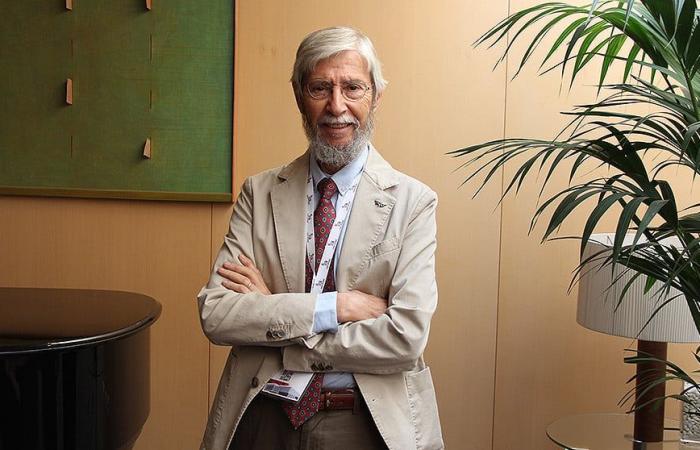The air we breathe takes years off our lives. The pollutionespecially that of the air, is a factor of risk of cardiovascular diseases forgotten. Therefore, it must be taken into account when managing patients and making decisions. This is what he wanted to convey Francisco Pérez-Jimenezdoctor of Medicine and professor at the University of Córdoba, in his presentation at the XXXVI Congress of the Spanish Atherosclerosis Society (SEA), celebrated these days in Castellón.
“In the world 6 million people die per year due to pollution and 25 percent of heart attacks and strokes are also due to it,” Pérez-Jiménez stated in an interview for Medical Writing. “Air pollution affects the reproduction, placenta and child development, to the digestive tract, to the heart, to the brain, etc. And it can also cause cancer, diabetes, among other diseases,” he added.
=”600″ height=”240″ layout=”responsive” alt=”AMP”> “The WHO dictates that a level of contaminating particles of 5 micrograms is harmful to health, but in Spain 20 micrograms are tolerated. We are ignoring an important problem,” Pérez-Jiménez detailed. |
Without being consciously aware, air particles are distributed throughout the body and exert harmful effects in all organs. Regarding the measures put in place to stop this situation, the expert explained that they are those aimed at stop warming because they have the same cause: the presence in the air of pollutants derived from the burning of fossil fuels. However, the programs fight against climate change “they are not progressing at the rate they should.”
“According to the World Health Organization (WHO), a level of contaminating particles of 5 micrograms is harmful to health. The limits tolerated in Spain are 20 micrograms. In other words, what the WHO considers to be harmful from 5 onwards, here would be considered for the population of 20. This makes an important problem is ignored. Mentalization is scarce because it doesn’t get people to make decisions“, said the professor at this annual SEA meeting.
Awareness of clinicians and patients
The clinicians have an important role when it comes to making the population and their healthcare colleagues become aware of the magnitude of this problem. As Pérez-Jiménez has pointed out, one of the health organizations that is most sensitive to the issue is the American Society of Cardiology who is working so that the doctors recommend to the cardiovascular patient or respiratory to take care of themselves with actions such as going outside with a mask or ventilating their homes.
“Doctors have to recommend concrete actions regarding pollution and that is not done yet. When we tell a person that he is at risk of cardiovascular disease and that he has to treat and take care of himself, we never add that yes. You are in a highly contaminated environment, you have to protect yourself“, highlighted the specialist.
=”600″ height=”240″ layout=”responsive” alt=”AMP”> The professor explained that living near a highway is already a risk factor for ischemic stroke due to chronic exposure. |
During his presentation, Pérez-Jiménez provided results from several studies with data such as that chronic or acute exposure (minimum 7 days) Pollution favors the development of short- and long-term coronary events. In fact, living near a highway is already a risk factor for ischemic stroke due to chronic exposure. Added to all this is that more than half of the deaths attributable to air pollutants are of cardiovascular cause.
Although it is not only about the air we breathe, also what we eat. As this professor specified in his presentation, food contributes greatly to create this pollution due to its production, processing, distribution and generation of waste. But, in addition, the products grown in CO2 environments have less protein and less nutritional quality.
=”600″ height=”240″ layout=”responsive” alt=”AMP”> Pérez-Jiménez has specified the organs that are damaged by today’s high levels of pollution. |
Although it may contain statements, data or notes from health institutions or professionals, the information contained in Medical Writing is edited and prepared by journalists. We recommend the reader that any health-related questions be consulted with a healthcare professional.






